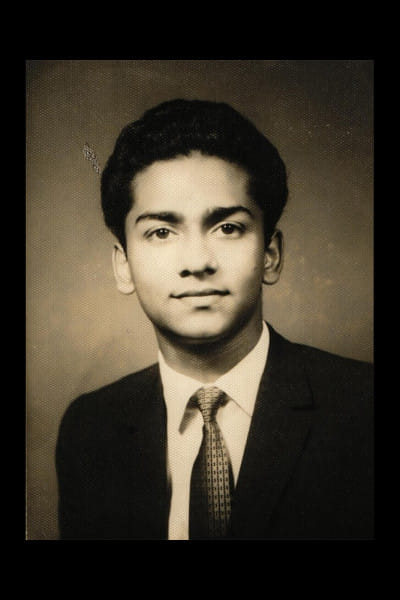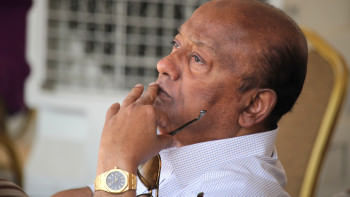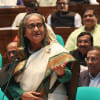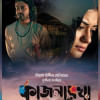Tribute by Mahfuz Anam: Remembering the flagbearer of independent journalism

Latifur Rahman—Shamim or Shamim Bhai to all—was an unlikely person to become a flagbearer of independent journalism. But once he did, he was most unswerving about it.
Before The Daily Star, he never showed any sign of wanting to get involved in this complicated and highly sensitive industry. Credit to draw him towards the media goes, as far as I know, to his one-time business partner and friend, Mr AS Mahmud (Mahmud Bhai to me) who convinced him about the importance of this crucial industry. It was my privilege to enjoy the latter's affection through my elder brother, Mahbub Anam, who was his professional colleague in the oil sector from pre-Bangladesh days. It was Mahmud Bhai who organised my first meeting with Shamim Bhai at the Dhaka Club in 1988-89. I really don't know if I had made any significant impression on him, but it seemed enough for him to continue to meet and carry on the discussion for investing in a new English language newspaper. He was a no-nonsense person and thought about whether I would really leave my tenured UN job—at that time posted in Bangkok, Thailand—to plunge into the uncharted waters of Bangladeshi media, which in the 1990s had very few new investors. I think it was our meeting at my apartment in the Thai capital in January 1990 that convinced him that my determination was for real. From then on, our friendship grew and we soon became partners in giving journalism in Bangladesh a new life, with SM Ali, our founding editor, at its helm.

It was in the initial board meetings of Mediaworld Ltd, the owning company of The Daily Star, that the true commitment of Shamim Bhai to independent journalism became apparent. Both Ali Bhai—a very famous and highly respected journalist and editor in the Asia-Pacific region—and I were most thrilled by the rules of the game that Shamim Bhai was enunciating, along with other founding directors, to run the newspaper. Before Ali Bhai or I could suggest it, Shamim Bhai persuaded other directors to collectively declare that the role of the board would be to formulate the overall policy and only monitor the financial aspect of the paper. The full journalistic control of The Daily Star would be totally in the hands of its editor-publisher. Nothing could energise us more.
It would be fair to think that it was as a mark of respect for Ali Bhai that the board of Mediaworld took such a hands-off approach. But when I was made its editor-publisher, following the sad demise of Ali Bhai in 1993, within two and half years of our founding, the same respect and independence was shown to me, proving that Mediaworld board's approach was institutional and not personal.
It was this institutional approach that was the hallmark of Shamim Bhai. The Daily Star must become an institution and everything must function systematically—this was the supreme message of the board. I can say with utmost pride that The Daily Star has a board which is among the most enlightened anywhere in terms of giving the utmost respect to the institution of the editor and allowing the management a free hand in running the newspaper. That is how we started, and that is how it remains till date.
There are many examples, but two would suffice to tell the whole story of Latifur Rahman's commitment to independent journalism.
Once, Shamim Bhai was contesting to become the president of the Federation of Bangladesh Chambers of Commerce and Industries (FBCCI). His opponent was Yussuf Abdullah Harun. Throughout the campaign, the paper, of which he was a vital leader, gave equal coverage to both. We interviewed both, wrote on both, but never tilted on either side. I went one step further. In every coverage, his opponent's item featured before his. As a contestant, he definitely must have wanted more coverage. But as a newspaper owner, he knew that the public would be watching and judging us as to how we handled the coverage. He never said a word to me about it. That is how objective he had the quality to be.
There was another occasion when a fellow businessman complained to him about some coverage by The Daily Star about corruption, especially wilful loan default and laundering of that money. Shamim Bhai advised him to contact the editor. "I don't run the paper, the editor does," he said. The businessman was shocked and exclaimed, "You own the paper and the editor runs it. How can that be possible?" That was Latifur Rahman.
When Matiur Rahman (Mati Bhai) and I approached him with the suggestion to launch a Bangla newspaper, he immediately agreed and found in Mati Bhai the perfect editor to go forward with it. All his values about journalism that he started with in The Daily Star, he implemented with equal gusto in Prothom Alo. He realised that an English newspaper was necessary, but a Bangla one would reach a far greater audience with the message of independent journalism. He greatly appreciated the extra efforts that Mati Bhai made and encouraged him to take newer initiatives like Prothoma publications, etc.

He would never miss the annual staff meetings of the two papers, especially of Prothom Alo. While appreciating the paper's magnificent performance and congratulating the staff and the editor for it, he would never fail to goad them to aspire for greater circulation, quality and business. When the paper reached a circulation of five lakh, he said, "Why not aim for 10 lakh?" That sort of ambition would require huge additional investment, but Shamim Bhai never shied away from it. When Prothom Alo's digital version became the biggest Bangla news portal in the world, outstripping Anandabazar Patrika of Kolkata of that position, his happiness showed no end. He was usually not very expressive, but on that occasion, it crossed the usual bounds.
There was an occasion when Transcom was about to own a well-known TV channel. Mati Bhai and I were assisting Shamim Bhai. At the very end of months-long negotiations, it came out that there was no official channel to pay the satellite fee and the channel paid it through "unofficial means." Shamim Bhai would have none of it. He said he would never accept that as a practice. We again marvelled at his ethical stance and wholeheartedly supported him.
Following every board meeting, he would join many of the senior colleagues of the paper and spend hours talking with them about any issue that would come up, but never forgetting to inquire about their personal and family situations. Once, a photographer of Prothom Alo suffered a life-threatening accident; Shamim Bhai arranged for him to be airlifted to Singapore and personally paid all his expenses till he recovered. This endeared him forever to all of us.
Today, as we commemorate Latifur Rahman on his fourth death anniversary, we at The Daily Star sorely miss his presence. We miss his warmth and his personal touch in going forward in the cause of independent journalism. He will be remembered for, among many other things, his sterling contribution in helping the emergence and continued success of the two most trusted and respected newspapers in Bangladesh.
Mahfuz Anam is the editor and publisher of The Daily Star.
Follow The Daily Star Opinion on Facebook for the latest opinions, commentaries and analyses by experts and professionals. To contribute your article or letter to The Daily Star Opinion, see our guidelines for submission.

 For all latest news, follow The Daily Star's Google News channel.
For all latest news, follow The Daily Star's Google News channel. 











Comments